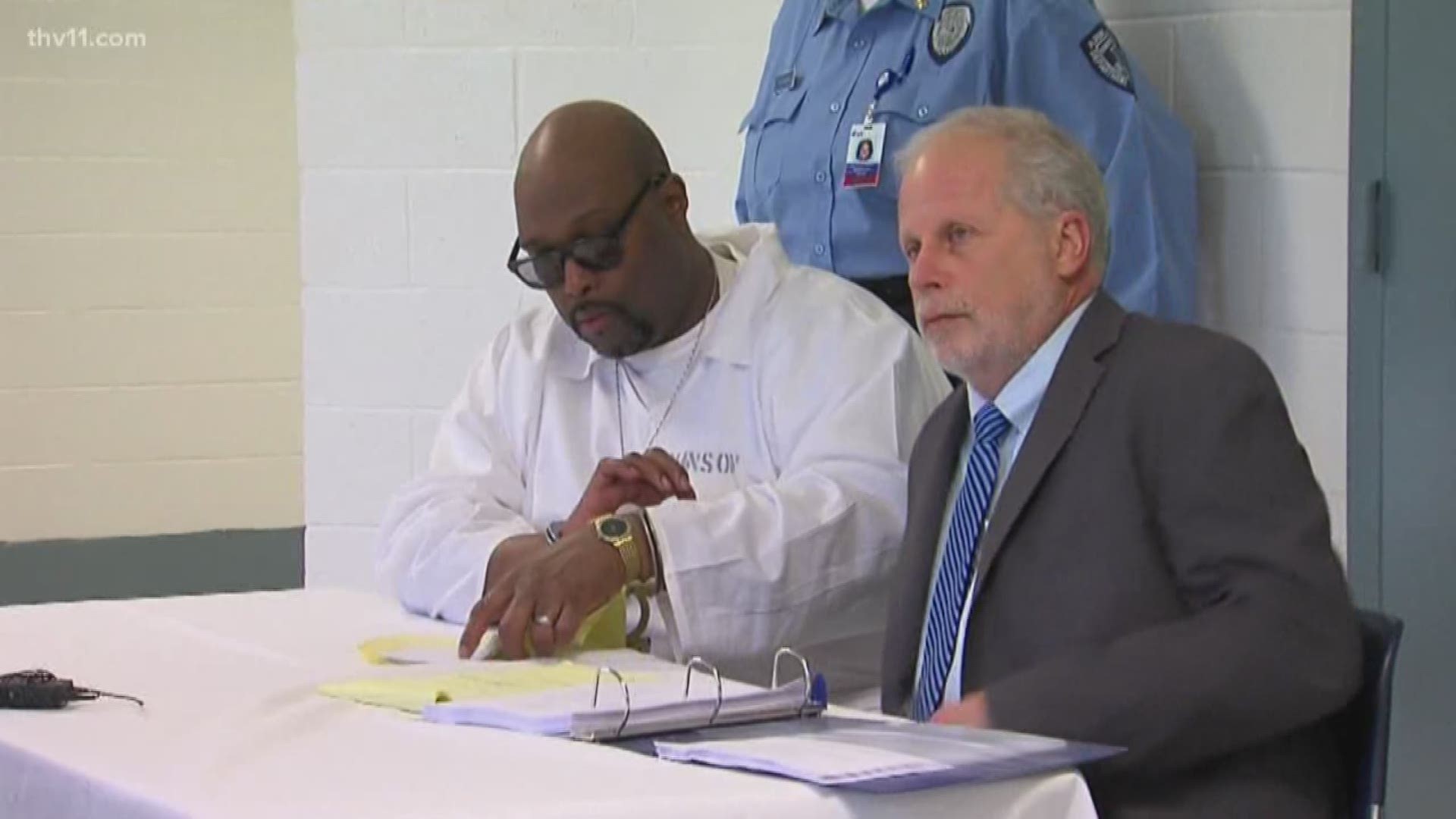LITTLE ROCK, Ark. — (Eds. note: The video attached above is from a 2020 denial for new DNA testing.)
A ruling by a three judge panel of the Eighth Circuit Court of Appeals said state officials can be sued by an Arkansas death row inmate who has been trying in the courts to get new DNA testing in his case.
In April 2017, Stacey Johnson filed a petition days before his scheduled execution to have new postconviction DNA testing on 26 pieces of physical evidence related to the murder of Carol Heath in 1993.
Johnson was one of eight death row inmates chosen by former Gov. Asa Hutchinson that were planned to be executed over a 10-day period. His execution was stayed by the Arkansas Supreme Court, who remanded the case for an evidentiary hearing.
The state trial court again denied new DNA testing and the state Supreme Court affirmed that ruling. They explained that DNA testing is only allowed under the law "if it can provide materially relevant evidence that will significantly advance the petitioner's claim of innocence in light of all evidence presented to the jury."
The Arkansas Supreme Court justices also said that "none of the evidence that might result" from new testing "could advance [his] claim of actual innocence or raise a reasonable probability that he did not murder Carol Heath."
Among the pieces of evidence Johnson has requested to be tested includes swabs from Heath's body and Caucasian hairs found at the scene. Those hairs were never tested.
Johnson then filed a petition for rehearing with his attorneys arguing that the denial of new testing under the law "implicate[d] a right to due process and access to the courts under the United States Constitution."
The state Supreme Court again denied him as well as the U.S. Supreme Court.
The death row inmate then sued the Attorney General of Arkansas, the Sevier County Prosecuting Attorney, and the Director of the Arkansas State Crime Laboratory, alleging the officials "continued refusal" to the testing denied him the due process of law and that it violated his federal constitutional rights.
Johnson then asked that Act 1780, which allows for DNA testing, be declared unconstitutional and that officials release DNA testing to him so he "can have the evidence testing at his own expense."
The district court ruled that he has "standing to challenge Act 1780" and the officials were not entitled to immunity, but dismissed all other claims by Johnson.
The three judges ruled that the state officials are not immune from the lawsuit "because Johnson seeks prospective declaratory and injunctive relief and has alleged a sufficient connection between the defendants and Act 1780's enforcement."
The case will now head back to Judge Kristine Baker for further ruling.

